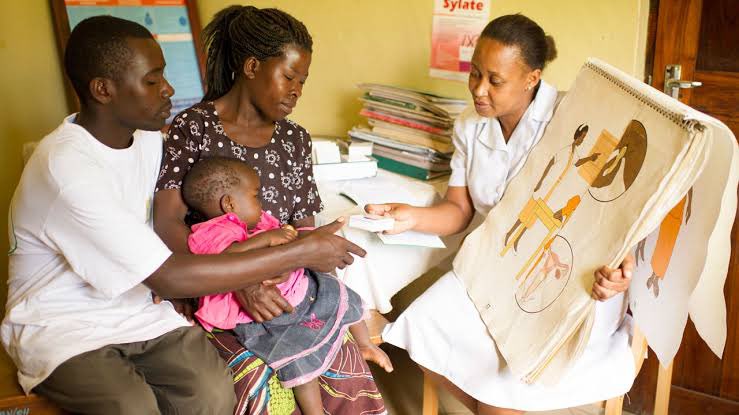Family planning prices in Kenya (Cost of birth control pills, implants & Injectibles)
Family planning is the practice of controlling the number of children one has and the intervals between their births, particularly by means of contraception or voluntary sterilization.

Only 17% of currently married women are using modern family planning methods. About 214 million women of reproductive age in low and middle income countries including Nigeria want to avoid pregnancy, but are not using a modern contraceptive method.
BENEFITS OF FAMILY PLANNING
✅ It enables people make informed choices about their sexual and reproductive health.
✅ By preventing unintended pregnancies, it helps reduce maternal mortality and infant mortality.
✅ Family planning methods such as barrier methods (use of condoms) help prevent sexually transmitted infections including HIV.
✅It helps slow population growth and reduce strain on the economy
✅It helps men and women care for their families as couples with fewer children are more likely to send both their sons and daughters to school.
METHODS OF FAMILY PLANNING:
NATURAL METHODS
1. Lactational Amenorrhea Method(Exclusive breastfeeding)
2. Fertility Awareness Method
SHORT TERM METHODS
1. Oral Contraceptive pills
2. Injectable Contraceptives
3. Barrier Methods
4. Patch
5. Vagina rings
LONG TERM METHODS
1. Contraceptive implant
2. Intrauterine Contraceptive Device(IUCD)
PERMANENT METHODS
They include Male Sterilization (Vasectomy) and Female Sterilization( Tubal ligation).
Sterilization is a surgical procedure that provides life long protection against pregnancy. It is a method for men and women that do not want to have any more children
MALE INVOLVEMENT IN FAMILY PLANNING
Men can actively participate in family planning by using condoms, advising their partners on the need for contraception ,encouraging and supporting them on the contraceptives they choose.
This allows men to take responsibility for family planning.
Family planning will help save lives of women and children and help alleviate poverty, reduce stress on the environment, and ensure that families are better able to feed,clothe and educate their children
Family planning prices in Kenya (Cost of birth control pills, implants & Injectibles)
1. Abstinence : Free
2. Implants: Commonly used implant is implanon. The total cost of getting the implant (which means the physical examination, consultation the implant itself, and having it inserted) costs around KSh 2000. The removal cost is KSh 1500. Removal of contraceptive implant in Kenya may cost about Ksh 150
3. Oral contraceptives pills: Cost about KSh 150 per month. The price of Birth control pills in Kenya may vary.
4. Male Condoms: May be distributed free in family planning clinics. Depending on the balrand and variety , condoms cost between KSh 10-25 per pack in Kenya.
5. Female condoms: May be given free in family planning clinics. Female condom sells as high as Ksh 120 in Kenya.
6. Rhythm Method: Here you do a daily check if your temperature to know when you have started ovulating. All you need is a thermometer. A thermometer in Kenya cost Ksh 10.
7. Withdrawal Method: Free but not advisable.
8. Emergency contraception or morning-after pill: The brands Plan B, postinor, postpill and One-Step Levonorgestrel pills usually cost about KSh 150.
9. Intrauterine device (IUD): The initial medical examination, the IUD, the insertion, and the follow-up can cost around KSh 3500 in Kenya
10. Contraceptive Injection: Injectible contraceptives like Depo-provera (DMPA) cost about Ksh 600 every 3 months.
11. Vasectomy: Permanent male contraception. Vasectomy in Kenya cost about Ksh 20,000
12. Tubal ligation: Permanent contraception in female. Tubal ligation cost about Ksh 30,000 in Kenya
ENSURE YOU VISIT A FAMILY PLANNING CLINIC AND TAKE CHARGE OF YOUR SEXUAL AND REPRODUCTIVE HEALTH.
Culled from NIMSA for www.nimedhealth.com.ng





















